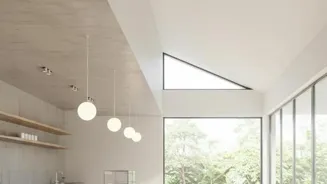Uncover the beauty of minimalism in 8 ways. Simplify your life, style, and mindset. Dive in to explore more
In today's fast-paced world, we're constantly bombarded with messages telling us to buy more,
do more, and be more. This constant pursuit of "more" can lead to a sense of overwhelm and dissatisfaction. But what if the answer wasn't to accumulate more, but to simplify?
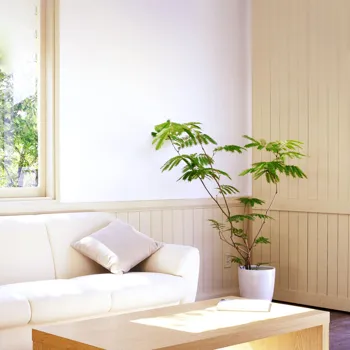
Minimalism, a lifestyle that encourages living with less, is gaining traction in India as individuals seek a more intentional and fulfilling existence.
It's about consciously choosing what we allow into our lives, focusing on quality over quantity and freeing up time and mental space for what truly matters.
Minimalism isn't about deprivation or living in an empty room.
It's about identifying what adds value to your life and shedding the excess baggage – the possessions, commitments, and even thoughts that weigh you down. It’s a journey of self-discovery, a process of curating a life that reflects your values and priorities.
By simplifying our lives, we can reduce stress, increase productivity, and find more joy in the simple things. Embracing minimalism can be a refreshing antidote to the consumerist culture that often leaves us feeling empty despite overflowing wardrobes and bank accounts.
Here are 8 ways to embrace minimalism and simplify your life and style:
Declutter Your Physical Space:
Start with your home. This is often the most tangible and rewarding place to begin your minimalist journey. Go room by room, drawer by drawer, and assess each item. Ask yourself: "Do I use this regularly?" "Does it bring me joy?" "Is it essential?" Be honest with yourself.
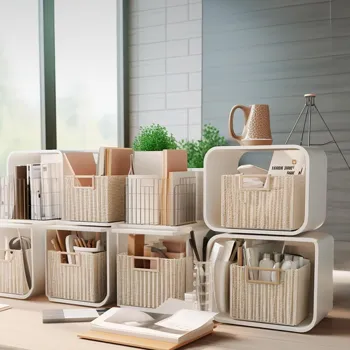
If the answer to any of these questions is no, consider donating, selling, or responsibly disposing of the item. A helpful tip is the "one in, one out" rule: whenever you buy something new, get rid of something similar. This helps prevent accumulation and keeps your space clutter-free.
Focus on creating a calm and organized environment where everything has its place. Remember, a decluttered space leads to a decluttered mind.
Decluttering can be an emotional process, especially when dealing with sentimental items.
But holding onto things out of obligation or guilt often leads to unnecessary stress. Take photos of cherished items to preserve the memories without physically holding onto them. Consider donating clothes you haven't worn in a year; chances are you won't miss them.
When decluttering, think about the joy your unwanted items could bring to someone else. Donation drives and charitable organizations are always grateful for your contributions.
Releasing these items not only frees up space but also brings a sense of satisfaction knowing you're helping someone in need.
Decluttering isn't a one-time event; it's an ongoing process. Establishing routines can help maintain a minimalist lifestyle.
For example, dedicate a few minutes each day to tidying up and putting things back in their place. Make it a habit to declutter seasonally, going through your wardrobe and belongings before each change of season.
Encourage other family members to participate in the process to create a clutter-free home environment for everyone. By making decluttering a regular practice, you'll find it easier to maintain a minimalist lifestyle in the long run. Less clutter, less stress, more peace of mind.
Curate Your Wardrobe:
The average person owns a startling number of clothes, many of which rarely get worn. A minimalist wardrobe, also known as a capsule wardrobe, involves carefully selecting a limited number of versatile pieces that can be mixed and matched to create a variety of outfits.
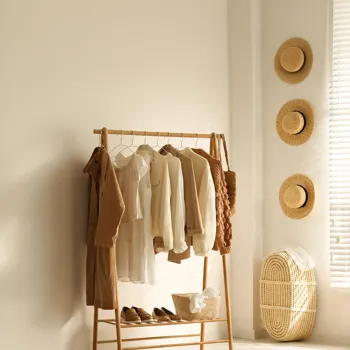
Start by taking inventory of your existing clothes. Identify your favorite pieces – the ones you love to wear and that fit you well. Then, assess the rest of your wardrobe and get rid of anything that doesn't fit, is damaged, or you simply don't enjoy wearing.
Focus on neutral colors and classic styles that are easy to combine. A well-curated wardrobe simplifies your daily routine and saves you time and money.
Building a capsule wardrobe requires thoughtful planning. Consider your lifestyle and the activities you typically engage in.
If you work in a formal office, your wardrobe will need to include professional attire. If you spend most of your time outdoors, you'll need durable and comfortable clothing. Choose high-quality fabrics that will last longer and withstand frequent wear.
Invest in a few essential pieces, such as a well-fitting blazer, a classic white shirt, and a versatile pair of trousers or jeans. These items can be dressed up or down for various occasions. By investing in quality over quantity, you'll create a wardrobe that is both stylish and sustainable.
Once you've established your capsule wardrobe, take good care of your clothes to extend their lifespan. Follow the care instructions on the labels and avoid overwashing. Repair any damage promptly to prevent it from worsening. Store your clothes properly to prevent wrinkles and damage.
Consider using garment bags to protect delicate items. With proper care, your capsule wardrobe can last for years, saving you money and reducing textile waste. Embracing a minimalist wardrobe is not only good for your wallet but also for the environment. Less consumption, less waste, more style.
Digital Declutter:
Our digital lives can be just as cluttered as our physical spaces. Emails, social media notifications, and unnecessary apps can overload our minds and distract us from the present moment. Take time to declutter your digital world.
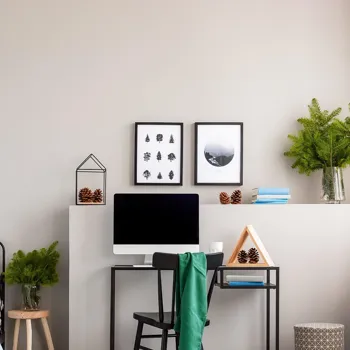
Unsubscribe from email newsletters you no longer read, unfollow accounts that drain your energy, and delete apps you rarely use. Organize your files and folders on your computer and phone, creating a logical system that makes it easy to find what you need.
Set boundaries around your technology use to prevent it from consuming your time and attention. A digital detox can be a refreshing way to reconnect with yourself and the world around you.
Managing your digital information is crucial for maintaining a minimalist digital lifestyle.
Use cloud storage services to back up your important files and access them from anywhere. Create strong passwords and use a password manager to keep your accounts secure. Be mindful of the information you share online and protect your privacy.
Regularly review your social media settings to ensure they align with your values. Consider using a digital calendar to schedule your activities and prioritize your time. By managing your digital information effectively, you can reduce stress and increase productivity.
Limiting your social media consumption is an essential part of a digital declutter. Social media can be a valuable tool for connecting with others, but it can also be a major source of distraction and comparison. Set time limits for your social media use and avoid scrolling mindlessly.
Be selective about the accounts you follow and unfollow those that make you feel inadequate or anxious. Focus on engaging with content that is informative, inspiring, or entertaining. Use social media intentionally, rather than letting it control your time and attention.
By being mindful of your social media consumption, you can create a healthier relationship with technology.
Simplify Your Commitments:
We often overcommit ourselves, juggling multiple responsibilities and feeling constantly stressed. Minimalism encourages us to be more selective about the commitments we take on. Evaluate your current obligations and ask yourself which ones are truly essential and fulfilling.

Say no to activities that drain your energy or don't align with your priorities. Protect your time and energy by setting boundaries and learning to prioritize. Less is often more when it comes to commitments, so focus on doing a few things well rather than spreading yourself too thin.
This will free up time for what truly matters, such as spending time with loved ones, pursuing your passions, or simply relaxing.
Saying "no" can be difficult, but it is an essential skill for simplifying your commitments.
Don't be afraid to decline invitations or requests that don't align with your priorities. Offer alternative solutions or suggest someone else who might be a better fit. Remember that saying "no" to one thing means saying "yes" to something else – your own well-being and priorities.
Be assertive and confident in your decisions, and don't feel obligated to explain yourself excessively. Learn to prioritize your time and energy, and don't let others pressure you into overcommitting yourself.
Delegating tasks can also help simplify your commitments.
If you have responsibilities that can be handled by someone else, consider delegating them. This could involve outsourcing tasks at work, hiring help with household chores, or asking family members for assistance.
Delegating tasks frees up your time and energy, allowing you to focus on the things that are most important to you. Be clear about your expectations and provide the necessary resources and support. Trust others to handle the tasks effectively and avoid micromanaging.
Delegating is a win-win situation that benefits both you and the person you're delegating to.
Practice Mindful Consumption:
Consumerism is rampant in our society, and we are constantly bombarded with advertisements urging us to buy more things. Minimalism encourages us to be more mindful of our consumption habits. Before making a purchase, ask yourself: "Do I really need this?" "What purpose will it serve?
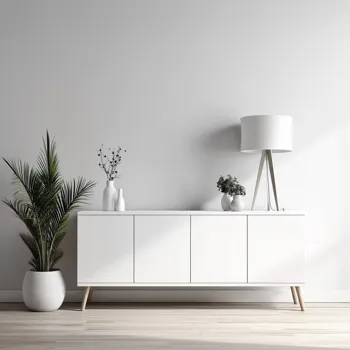
" "Is there a more sustainable alternative?" Avoid impulse buying and take time to research your options. Choose quality over quantity and invest in products that are durable and long-lasting.
By practicing mindful consumption, you'll save money, reduce waste, and create a more sustainable lifestyle.
Being aware of marketing tactics is crucial for practicing mindful consumption. Advertisers often use persuasive techniques to make us believe that we need things we don't actually need.
Be skeptical of advertising claims and do your own research before making a purchase. Avoid shopping when you're feeling emotional or vulnerable, as you're more likely to make impulsive decisions. Unsubscribe from marketing emails and unfollow accounts that promote excessive consumerism.
By being aware of marketing tactics, you can make more informed decisions about your spending habits.
Prioritizing experiences over material possessions is a key aspect of mindful consumption. Experiences create lasting memories and enrich our lives in ways that material possessions cannot.
Instead of buying the latest gadget or designer handbag, consider investing in a travel adventure, a cooking class, or a concert ticket. Experiences connect us with others, challenge us, and broaden our horizons.
They provide opportunities for personal growth and create memories that we will cherish for a lifetime. By prioritizing experiences over material possessions, we can cultivate a more fulfilling and meaningful life.
Embrace Experiences Over Things:
Instead of focusing on acquiring more possessions, shift your focus to creating experiences. Travel, learn a new skill, spend time with loved ones, or pursue a hobby you enjoy. Experiences create lasting memories and enrich our lives in ways that material possessions never can.
They also tend to be more sustainable, as they don't contribute to the endless cycle of consumption. Investing in experiences will bring you more joy and fulfillment in the long run.
Planning meaningful experiences requires careful consideration.
Think about your interests and passions and identify activities that align with your values. Consider setting goals for personal growth and choose experiences that will help you achieve those goals. Research different options and compare prices.
Book in advance to secure your spot and take advantage of discounts. Don't be afraid to step outside your comfort zone and try new things. Planning meaningful experiences can be a fun and rewarding process.
Sharing experiences with others strengthens relationships and creates lasting memories.
Invite friends and family to join you on your adventures. Plan group activities that cater to everyone's interests. Document your experiences with photos and videos to preserve the memories. Share your experiences with others online to inspire them to pursue their own passions.
Sharing experiences with others enhances the joy and fulfillment they bring. It creates a sense of community and strengthens the bonds that connect us.
Cultivate Gratitude:
Minimalism helps us appreciate what we already have by making us more aware of our possessions and commitments. Take time each day to practice gratitude, focusing on the things you are thankful for.
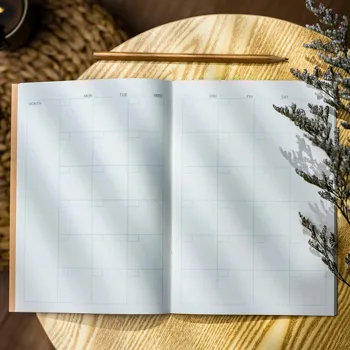
This could be as simple as appreciating a beautiful sunrise, a delicious meal, or the company of loved ones. Cultivating gratitude shifts your focus from what you lack to what you have, fostering a sense of contentment and happiness.
It also helps you resist the urge to constantly seek more, making it easier to embrace a minimalist lifestyle.
Keeping a gratitude journal is a great way to cultivate gratitude. Each day, write down three to five things you are thankful for. Be specific and detailed in your descriptions.
Reflect on the positive aspects of your life and the people who make it meaningful. Over time, you'll develop a greater appreciation for the simple things in life and a stronger sense of gratitude. A gratitude journal can be a powerful tool for shifting your focus from negativity to positivity.
Expressing gratitude to others strengthens relationships and creates a positive ripple effect. Take time to thank the people who have helped you along the way. Write a thank-you note, offer a compliment, or simply express your appreciation verbally.
Let others know how much you value their presence in your life. Expressing gratitude to others not only makes them feel good but also enhances your own sense of well-being. It creates a cycle of positivity and strengthens the bonds that connect us.
Focus on Well-being
Ultimately, minimalism is not just about decluttering possessions. It’s about making space– freeing yourself to enjoy the experiences and relationships that bring true happiness.
Minimalism should work for you.
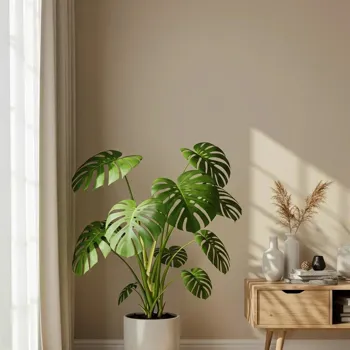
If holding on to a few extra clothing items is okay, but that bookshelf must go, it’s okay. It isn’t an iron-clad concept that demands all who follow to conform to a narrow aesthetic.
Mindfulness means taking stock of everything that's consuming your mental energy and making deliberate, positive choices.
Embracing a minimalist lifestyle is a journey, not a destination. It's about finding a balance that works for you and continuously refining your approach.
Be patient with yourself, celebrate your progress, and remember that the goal is to create a more intentional, fulfilling, and joyful life. By embracing the art of minimalism, you can create a life that is lighter, simpler, and more meaningful.
